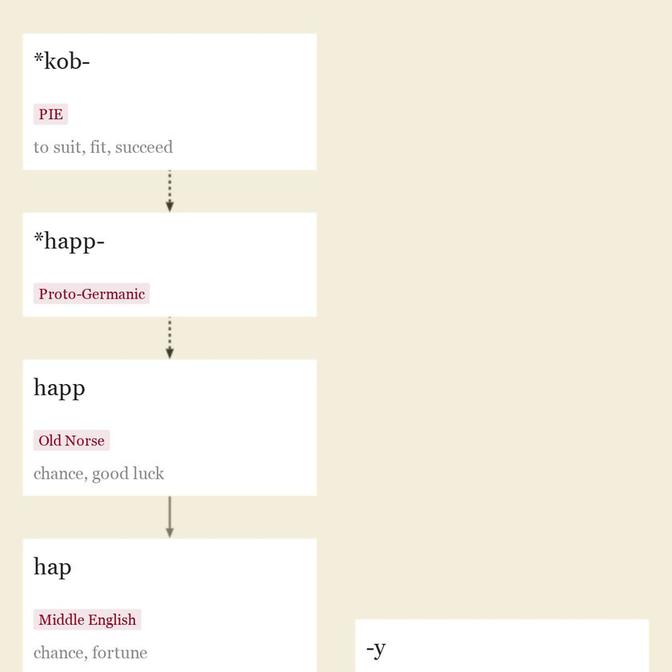silly adj.
Middle English seli, seely, from Old English gesælig "
This is one of the few instances in which an original long e (ee) has become shortened to i. The same change occurs in breeches, and in the American pronunciation of been, with no change in spelling. [Century Dictionary]
The word's considerable sense development moved it by various streams from "
It is a widespread phenomenon that the words for 'innocent', apart from their legal use, develop, through 'harmless, guileless', a disparaging sense 'credulous, naive, simple, foolish.' [Buck]
There may be a further specialization toward "
Silly season in journalistic slang is from 1861 (in reference to August and September, when newspapers compensate for a lack of hard news by filling up with trivial stories). The trademark for the toy Silly Putty claims use from July 1949. Sillyism "
updated on October 27, 2022
